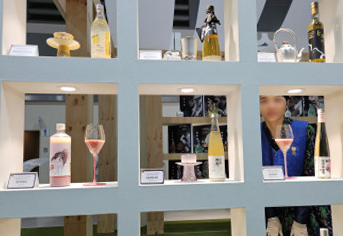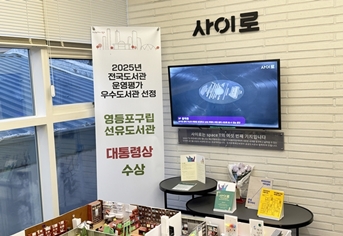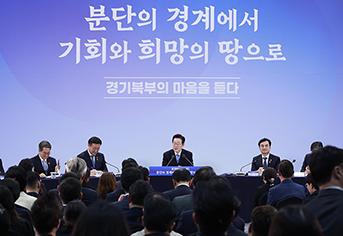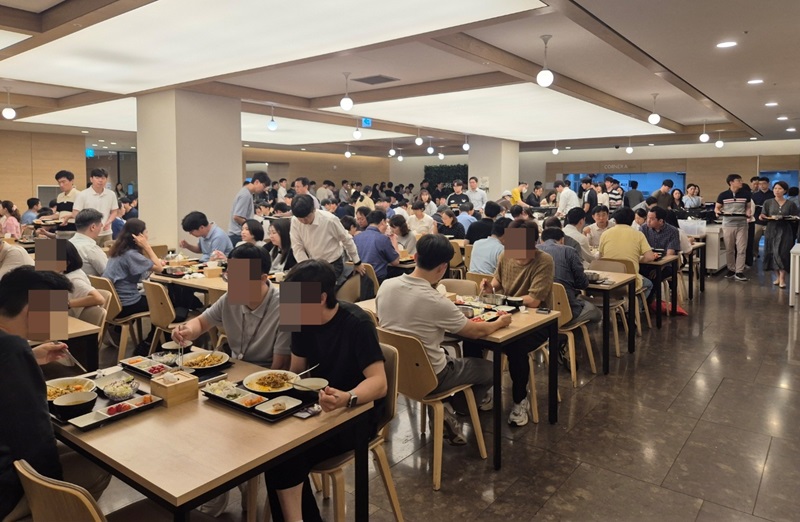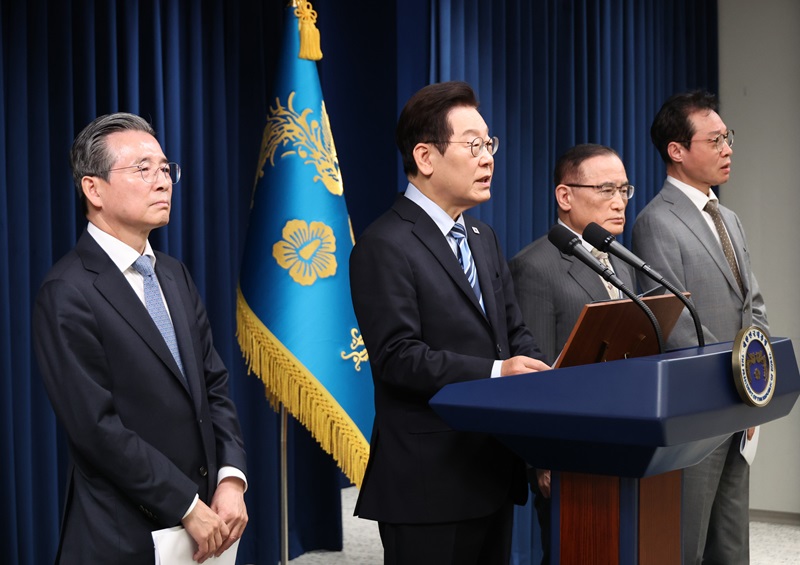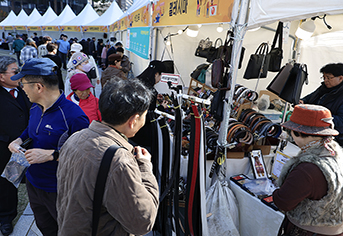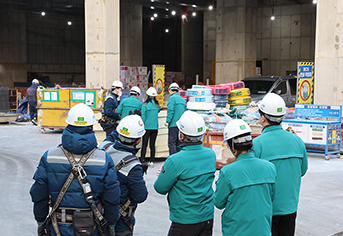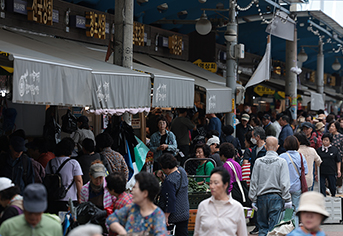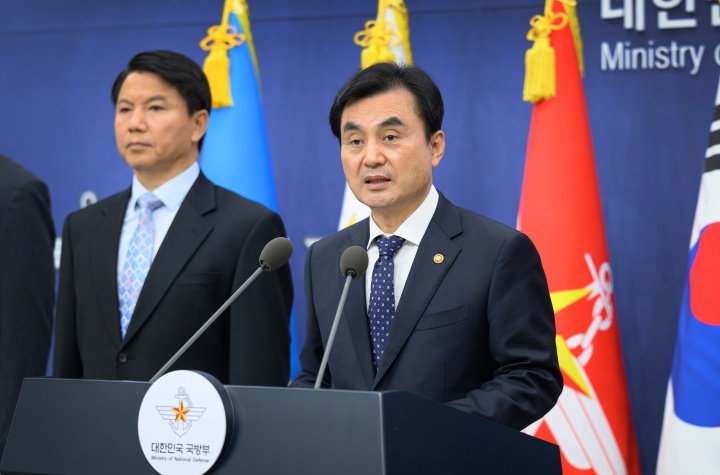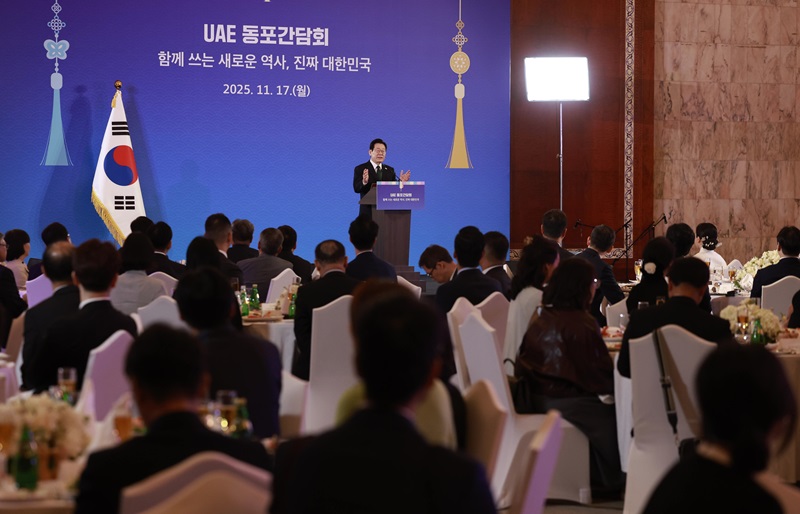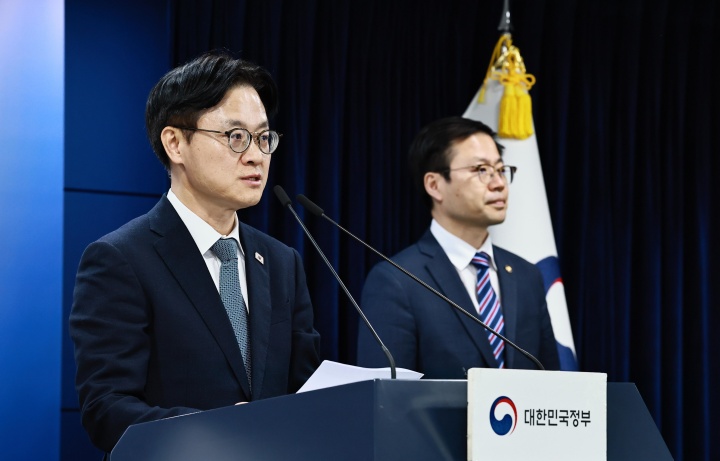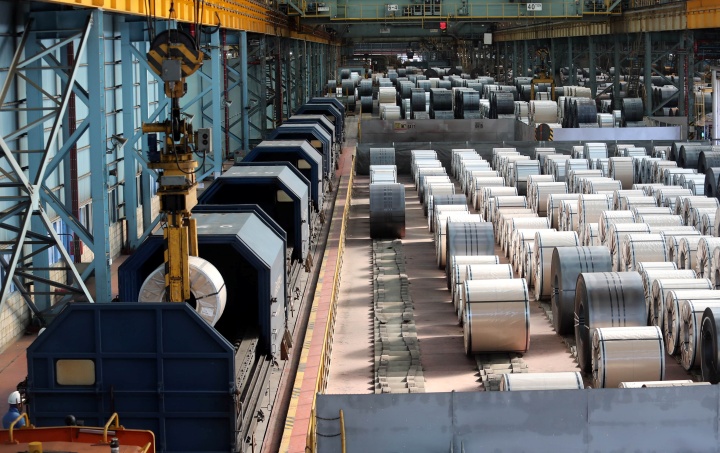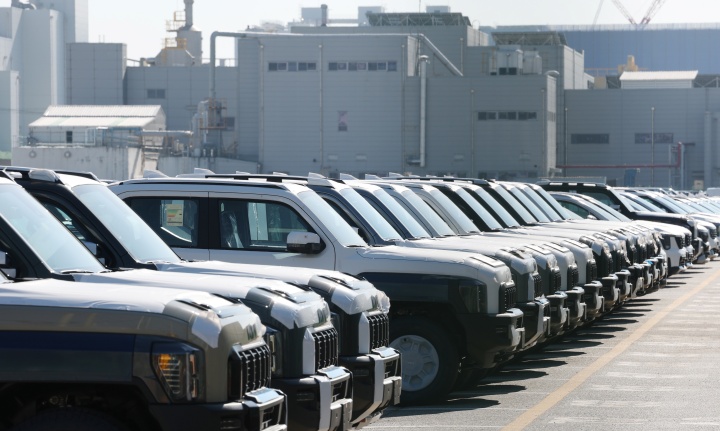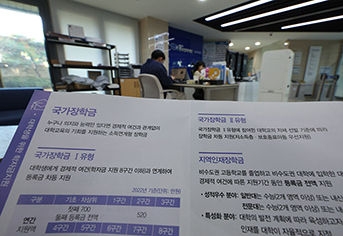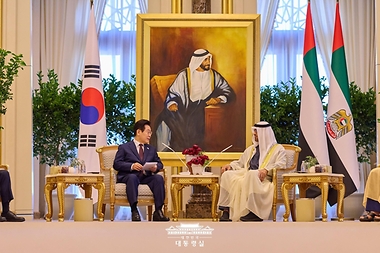.jpg)
서론적 관점
1951년, 스물한 살이었던 제 할아버지는 에티오피아 카그뉴(Kagnew) 대대 일원으로 한국전쟁에 참전하기 위해 부산에 도착했다. 그의 손에 쥐어졌던 것은 군복 한 벌과 한 번도 가본 적 없는 먼 나라를 지키겠다는 사명감, 그리고 작은 용기 하나뿐이었다.
3주간의 긴 항해를 시작하기 전까지 그는 한국의 언어도, 사람도, 지리도 알지 못했지만, 할아버지의 마음 속에는 단 하나의 확신은 있었다. 어디에서든 평화가 위협받는다면, 그것은 결국 모두의 문제라는 신념이었다. 그 믿음은 할아버지의 인생을 바꿨고, 훗날 제 삶의 방향에도 결정적인 영향을 남겼다.

수십 년이 흐른 뒤, 나는 장학생으로 한국에 와서 유학 생활을 했고, 현재 부산 경성대학교의 교수로 재직하고 있다. 할아버지가 전쟁터로 경험했던 한국은 어느새 나에게 두 번째 고향이 됐고, 예상치 못했던 역사적 인연은 개인적인 소속감으로 이어졌다. 매 학기 전 세계에서 온 유학생들을 맞이할 때마다 할아버지가 건넜던 그 다리가 단지 군사적 다리가 아니라, 사람과 사람을 잇는 다리였다는 사실을 깨달았다.
이러한 가계(家系)의 기억과 책임감을 안고 나는 다가오는 '주요 20개국(G20) 정상회의'를 주목하고 있다. 이번 회의는 사상 최초로 남아프리카 대륙, 남아프리카공화국 요하네스버그에서 개최되며, 주제는 '연대, 평등, 지속가능성(Solidarity, Equality, Sustainability)'이다. 아프리카와 한국, 두 대륙에 뿌리를 두고 살아가는 나에게는, 이번 회의는 단순히 국제행사가 아니라, 아프리카가 세계 중심 무대에서 목소리를 낼 수 있는 상징적인 전환점으로 다가온다.
오늘날 아프리카는 세계에서 가장 역동적인 지역으로 평가받고 있다. 인구는 약 14억 8000만 명이며, 2050년에는 두 배 가까이 증가할 것으로 예상된다. 특히 평균 연령이 19세에 불과해, 전 세계에서 가장 젊은 대륙이라는 타이틀을 가지고 있다. 25세 이하 인구가 전체의 60% 이상을 차지하며, 이들은 기업가 정신과 디지털 혁신, 문화 산업 등에서 중심적인 역할을 하고 있다. 동시에 54개국이 참여한 아프리카대륙자유무역지대(AfCFTA)는 세계 최대의 참여국 수를 자랑하는 자유무역지대로, 아프리카의 경제 지형을 빠르게 바꾸는 핵심 엔진이 되고 있다.
이 숫치들은 단순한 통계가 아니다. 앞으로 한국이 마주하게 될 새로운 글로벌 환경을 보여준다. 한국은 세계에서 가장 빠르게 고령화가 진행 중인 나라 중 하나로, 경제학자들은 이미 한국을 '초고령 사회'로 정의하고 있다. 이런 상황에서 인구 구조가 젊고 성장 여력이 큰 아프리카는 한국과 대비되는 존재가 아니라, 서로의 취약성을 보완해 줄 수 있는 중요한 파트너다.
아프리카는 한국의 성장 경험에서 많은 영감을 얻고 있다. 많은 아프리카 지도자들과 지역사회는 이미 새마을운동을 연구하고 있다. 공동체 중심의 자조와 협동, 주민 주도의 변화는 가난과 전쟁을 겪은 나라가 어떻게 국민의 힘으로 일어설 수 있는지를 보여 주는 살아 있는 사례다. 이러한 사례는 단지 과거의 이야기가 아니라, 지금 한국에서 공부하고 있는 아프리카 유학생들에게는 자기의 삶의 미래를 상상하게 만드는 실천 가능한 모델로 작용한다.
남아공 G20 정상회의는 한국과 아프리카가 지닌 협력의 잠재력을 상징적으로 보여주는 무대가 될 것이다. 한국은 새로운 성장 동력과 폭넓은 파트너십을 모색하고 있으며, 아프리카는 세계 시장·기후 대응·혁신의 중요한 행위자로 부상하고 있다. 이번 정상회의 주제인 '연대, 평등, 지속가능성'은 한국–아프리카 협력의 방향을 함축적으로 드러내는 표현이라 할 수 있다.
포용적 성장과 상생 번영
세계 경제가 구조적 전환을 겪고 있는 지금, 아프리카의 위상은 더 이상 주변적인 사안이 아니다. 아프리카개발은행에 따르면, 2023년 아프리카 전체 GDP 성장률은 3.2%, 2025년에는 4.1% 수준으로 회복될 전망이다. 국제금융공사(IFC)는 오는 2025년까지 아프리카 디지털 경제가 대륙 GDP에 1800억 달러를 더할 것으로 예측한다. 나이로비, 라고스, 키갈리, 아크라 등 주요 도시에서는 모바일 금융, 재생에너지, 교통, 교육 분야에서 수많은 청년 개발자와 기업가들이 새로운 해법을 만들어 내고 있다. 이들 분야는 모두 한국이 오랜 기간 경험과 기술적 경쟁력을 쌓아 온 영역이기도 하다.
이러한 경제적 변화는 한국의 경험과도 깊게 맞닿아 있다. 한국은 전쟁 직후 폐허 속에서 자연자원보다 사람과 교육, 집단적 회복력을 기반으로 세계적인 기술국가로 성장해 왔다. 아프리카에서도 2024년 기준 세계은행 추산 연간 1100만 명 이상의 청년이 노동시장에 새로 진입하고 있다. 이 인구학적 에너지가 적절한 파트너십과 기술·역량 개발과 결합될 때 글로벌 혁신 지형 자체를 바꿀 수 있는 잠재력이 된다.
한국에게 아프리카와의 협력은 단순한 시장 확대를 넘어 포용적 세계 성장에 기여하는 전략적 투자다. 한국 기업들은 이미 인프라, 통신, 에너지, 제조업 등 다양한 분야에서 아프리카 각국과 협력하고 있지만, AfCFTA가 열어 주는 54개국 단일 시장 규모를 고려하면 현재 진출 수준은 아직 출발점에 가깝다. 디지털 정부, 스마트시티, 친환경 모빌리티, 제조업 경쟁력 등 한국이 가진 강점은 보다 활발한 진출로 이어질 수 있다.
포용적 성장은 교육과 인재교류에도 구현된다. 매년 더 많은 아프리카 학생들이 한국 유학을 선택하고 있으며, 그중 상당수는 내가 강의하는 교실에 앉아 있다. 이들의 존재는 한국 대학과 지역사회에 새로운 관점을 제공하고, 장기적으로는 한국–아프리카 관계를 잇는 인적 네트워크를 형성한다. 이들은 아프리카의 현실을 이해하면서 한국의 기술과 제도를 익히는, 말 그대로 두 대륙을 연결할 '미래의 다리'다.

결국 포용적 성장은 전환의 순간에 어느 누구도 뒤처지지 않는 발전을 의미한다. 고난을 딛고 성장해 온 한국과 아프리카는 이러한 목표를 자연스럽게 공유하는 동반자다. 남아공 G20 정상회의는 이러한 상생의 방향을 구체적인 협력으로 이어 갈 중요한 계기다.
기후 회복력·녹색 파트너십·지속가능성
기후변화는 21세기 가장 중대한 도전 과제다. 그 영향은 불균등하게 나타나며 특히 취약한 지역과 공동체일수록 먼저, 그리고 가장 강하게 나타난다. 아프리카는 전 세계 온실가스 배출량의 4% 미만만을 차지하지만, 동아프리카의 장기 가뭄, 남부 아프리카의 초강력 사이클론, 다카르에서 다르에스살람에 이르는 해안 도시들의 해수면 상승 등 가장 극심한 피해를 겪고 있다. 이는 식량 안보, 이주(인구 이동), 지역 안정성에 직결되는 문제다.
한국 역시 기후위기로부터 자유롭지 않다. 기록적인 폭염과 국지성 호우, 강한 태풍과 예측하기 어려운 계절 변화는 이미 일상의 일부가 됐다. 이런 공동의 취약성은 한 가지 분명한 사실을 말해 준다. 한국도, 아프리카도 혼자서는 기후위기를 극복할 수 없으며, 지속가능성은 선택이 아닌 공동의 책무라는 것이다.
아프리카는 재생에너지 잠재력에서 세계적인 강점을 가진다. 국제에너지기구에 따르면 아프리카는 세계 최고 수준의 태양광 잠재력의 60% 이상을 보유하고 있지만, 설치된 설비는 전 세계의 1% 에 불과하다. 이 격차를 줄이는 일은 아프리카의 발전을 돕는 동시에 지구 전체 탄소 감축에 중요한 기여가 된다. 한국은 태양광, 그린수소, 스마트그리드, 수자원 관리 등에서 축적된 기술적 경험을 바탕으로 아프리카와 함께 기후 회복력을 높이는 데 중요한 파트너가 될 수 있다.
이미 여러 긍정적인 협력 사례들이 나타나고 있다. 한국 기업들은 태양광 미니그리드 구축, 디지털 기후 모니터링 시스템, 연안 보호 인프라 등에 참여하며 현지 정부와 손을 잡고 있다. 한국의 그린뉴딜 정책과 2050 탄소중립 목표는 아프리카 국가들의 기후 전략과 방향을 같이한다. 그러나 기술과 투자만으로는 충분하지 않다. 아프리카가 한국에 기대하는 것은 현지의 지식과 경험을 존중하고 함께 해법을 설계하는 파트너 정신이다. 이것은 한국이 성장 과정에서 오랫동안 지켜 온 가치이기도 하다.
기후 회복력은 궁극적으로 사람과 다음 세대를 지키기 위한 노력이다. 인구 구조의 급격한 변화를 겪는 한국과 세계에서 가장 젊은 인구를 가진 아프리카에게 지속가능성은 환경 의무를 넘어 '미래를 함께 설계하는 약속'이다. 아프리카에서 처음 열리는 이번 G20은 기후위기가 우리의 운명을 어떻게 연결하고 있는지를 보여 주며, 한국과 아프리카가 더 녹색이고 회복력 있는 미래로 함께 나아가야 한다는 메시지를 전하고 있다.
혁신, AI, 양질의 일자리, 그리고 미래의 일
세계 경제가 본격적인 AI 시대에 접어들면서, 기술 접근성의 차이는 새로운 형태의 불평등으로 이어지고 있다. G20의 세 번째 세션이 혁신과 양질의 일자리, 공정한 디지털 미래를 다루는 이유도 여기에 있다. 기술은 사람을 위해 존재해야 하며, 사회를 나누는 벽이 돼서는 안 된다.
아프리카는 세계에서 디지털 전환 속도가 가장 빠른 지역 중 하나다. 세계이동통신사업자연협회(GSMA)는 2025년 사하라 이남 아프리카의 모바일 인터넷 이용자가 6억 1500만 명에 이르고, 스마트폰 보급률은 75%를 넘어설 것으로 전망한다. 라고스, 나이로비, 키갈리와 같은 도시는 핀테크, AI 기반 헬스케어, 의약품 드론 배송 등 다양한 혁신 서비스의 실험장이자 세계가 주목하는 스타트업 허브로 부상하고 있다.
이 변화는 자연스럽게 한국의 강점과 연결된다. 삼성전자는 남아공·나이지리아·에티오피아·케냐 등에서 ICT·엔지니어 교육 아카데미를 운영하며 수천 명의 청년에게 기술 교육 기회를 제공하고 있다. LG전자는 동·남부 아프리카에 제조 및 혁신 거점을 확대하며 현지 일자리와 기술 이전에 기여하고 있다. 현대자동차그룹은 일부 아프리카 국가들과 전기차 조립, 모빌리티 솔루션, 교통 안전교육 등을 함께 추진하고 있다.
이러한 노력은 단순한 투자나 수출을 넘어 아프리카 청년들의 디지털 역량을 강화하고, 한국 기업이 미래 인재를 발굴하는 장이 되고 있다.
동시에, 급증하는 아프리카의 청년 인구는 인구 감소와 인력 부족에 직면한 한국에게도 새로운 가능성을 제공한다. AI·친환경 기술 분야의 직업훈련, 공동 연구 프로그램, 인턴십, 산학협력 등을 통해 양측은 상호 보완적인 글로벌 인재 순환 구조를 구축할 수 있다.
한국이 아시아태평양경제협력체(APEC)와 G20에서 제시하고 있는 '글로벌 AI 기본사회' 비전은 인간의 존엄과 공정성, 포용을 중심에 둔다. 이 논의에서 아프리카는 주변에 머물러서는 안 된다. 앞으로 한 세기를 규정할 AI 규범과 디지털 거버넌스의 공동 설계자로 적극 참여해야 한다. 제한된 자원 속에서도 세계적인 혁신 생태계를 구축해 온 한국은 이러한 과정에서 아프리카와 함께 보다 공정하고 열린 디지털 미래를 만들어 갈 수 있다.
결국 혁신이란 기계나 알고리즘의 발전뿐만 아니라, 청년들이 더 나은 삶을 상상할 수 있는 기회를 넓히는 것이다. 한국과 아프리카의 청년들이 부산의 강의실에서 나이로비의 스타트업 허브에서 함께 협력할 때 G20이 지향하는 미래(기술이 인간의 존엄을 강화하고 대륙과 문화를 잇는 다리가 되는 미래)가 한 걸음 더 가까워진다.
상호 이익, 그리고 함께 여는 미래
급변하는 국제 질서 앞에서 한국과 아프리카가 마주한 협력의 가능성은 결코 추상적인 구호가 아니라 매우 구체적이고, 상호 이익에 기반하한 현실적인 과제다. 한국은 새로운 시장과 파트너, 인재풀을 확보함으로써 인구·경제 구조의 도전을 극복해 나갈 수 있다. 아프리카는 교육·기술·정책 경험을 가진 파트너를 통해 자국의 발전 전략을 한층 더 고도화할 수 있다. 양측 모두에게 필요한 것은 '서로를 이해하는 친구이자 동반자'다.
올해 요하네스버그에서 열리는 G20 정상회의는 이러한 흐름을 더욱 선명하게 보여줄 것이다. 아프리카가 세계에서 가장 영향력 있는 경제 협의체를 처음으로 주최한다는 사실은 그 자체로 큰 상징성을 지닌다. 전쟁과 가난을 극복하며 기적같이 성장한 한국에게도, 이번 정상회의는 연대가 단지 가치가 아니라 책임이라는 사실을 다시금 일깨우는 계기가 될 것이다.
한국과 아프리카를 잇는 실질적인 연결고리는 이미 하나둘씩 쌓여 가고 있다. 한국 기업의 현지 진출, 아프리카 유학생들의 한국 유학과 연구, K-컬처를 매개로 한 문화 교류, 그리고 기후·일자리·보건 등 공통 과제에 대한 협력 논의는 해마다 늘어나고 있다. 이처럼 사람과 사람을 잇는 관계야말로 어떤 정책 문서보다 단단한 협력의 토대다.
이 관계의 의미를 생각할 때마다 할아버지를 떠올린다. 그는 한국어 한마디 모른 채, '멀리 있는 나라의 평화를 지키는 일이 가치 있는 일'이라는 믿음 하나로 바다를 건넜다. 70여 년이 지난 지금, 저는 군인이 아닌 교육자이자 연구자로서 두 대륙을 오가며 지식과 공감, 연대를 잇는 또 다른 다리를 놓고 있다.
곧 시작될 남아공 G20 정상회의를 계기로, 한국과 아프리카가 공여국–수원국, 중심–주변이라는 오래된 틀을 넘어 대등한 파트너로 한 걸음 더 나아가길 바란다. 지속가능하고 품위 있으며, 그리고 진정으로 공유된 미래를 향해 함께 걷는 것. 그것이야말로 제 할아버지가 믿었던 연대의 정신이자, 한국–아프리카 협력이 앞으로 나아가야 할 방향이라고 믿는다.
◆ 다음은 이스라엘 피세하 교수의 영어 버전 칼럼 전문.
Opening Perspective
When my grandfather, barely twenty-one, arrived in Busan in 1951 as part of the Ethiopian Kagnew Battalion, he carried nothing more than a soldier's uniform, a sense of duty, and the hope that his small act of courage might help protect a distant nation he had never seen. Before that three-week journey across the sea, he did not know the language, the people, or the land he would soon defend. Yet he felt an unmistakable conviction—if peace was threatened anywhere, it mattered everywhere.
That conviction shaped the course of his life—and eventually, mine. Decades later, I found myself walking through the streets of Korea as a scholarship student, and now as a professor at Kyungsung University. The country my grandfather once entered as a war zone has become my second home, a place where unexpected historical ties have grown into personal belonging. Every time I teach international students or welcome young people from around the world into my classes, I am reminded that the bridge my grandfather crossed was not only military—it was profoundly human.
It is with this sense of lineage and responsibility that I look toward the upcoming G20 Summit in Johannesburg. This year marks the first time the G20 will convene on African soil, under the theme "Solidarity, Equality, Sustainability." For someone whose family story spans both continents, the symbolism is not abstract. It reflects a growing recognition that global leadership must evolve to match the shifting realities of our world.
Africa today is one of the most dynamic regions on the planet. With 1.48 billion people—a number projected to nearly double by 2050—and a median age of just 19, it is the most youthful continent on earth (United Nations, World Population Prospects 2024). More than 60% of its population is under 25, forming a rising generation that is driving entrepreneurship, digital innovation, and cultural creativity at remarkable speed. Meanwhile, the African Continental Free Trade Area (AfCFTA)—now the largest free-trade area by participating countries—is reshaping economic integration across 54 member states.
These figures are far more than statistics. They represent the emerging global landscape that Korea will increasingly interact with—especially as Korea navigates one of the world's fastest demographic declines. As Korea enters what economists call a "super-aged society," Africa's young and expanding population stands not as a contrast, but as a complement: two regions whose strengths can reinforce each other, if approached with respect and a long-term vision.
Korea's own development story offers another point of resonance. Many African leaders and communities continue to study the Saemaul Undong, the grassroots movement that transformed rural Korea through community participation, self-help, and shared responsibility. What moves them is not a technical formula, but a lived example of how a nation once marked by poverty and war rebuilt itself through collective determination. As someone who teaches and researches across both histories, I often witness how these stories spark hope and imagination among African international students in Korea.
The G20 Summit in Johannesburg arrives at a moment when both continents stand at meaningful crossroads. Korea is searching for new engines of growth and broader global partnerships, while Africa is emerging as a decisive actor in global markets, climate responses, and innovation. The summit's theme—solidarity, equality, sustainability—is therefore not simply a diplomatic slogan. It captures the deeper potential of Korea–Africa cooperation, grounded in history, shared values, and a future that both sides are increasingly called to shape together.
Inclusive Growth & Shared Prosperity
As the global economy undergoes profound shifts, Africa's increasing role is impossible to overlook. According to the African Development Bank, the continent's overall GDP grew by 3.2% in 2023 and is projected to rebound to 4.1% by 2025, outpacing many advanced economies. Even more striking is the rise of Africa's digital economy, which the International Finance Corporation estimates will add $180 billion to the continent's GDP by 2025. Across major hubs like Nairobi, Lagos, Kigali, and Accra, young developers and entrepreneurs are building solutions for mobile finance, renewable energy access, transportation, and education—industries in which Korea possesses deep experience and cutting-edge expertise.
These economic transformations resonate deeply with Korea's own journey. Korea moved from a post-war economy to one of the world's most advanced technological nations in just a few decades. Its development was not driven by natural resources, but by people, education, and collective resilience. Today, Africa is experiencing a similar surge of human capital, with over 11 million young Africans entering the labor market every year (World Bank, 2024). This demographic momentum, if matched with the right partnerships and skills development, will shape the world's future innovation landscape.
For Korea, cooperation with Africa is not only a matter of economic opportunity but a strategic investment in inclusive global growth. Korean companies are already active in infrastructure, telecommunications, energy, and manufacturing sectors across Africa. Yet the potential remains far greater than the current scale of engagement. The AfCFTA creates a single market of 54 countries—a scale Korean enterprises have rarely encountered outside of large regional blocs. With Korea's strengths in digital government, smart cities, green mobility, and manufacturing, the conditions are ripe for mutually beneficial expansion.
The spirit of inclusive growth also extends to education and talent exchange. Every year, a growing number of African students choose Korea for higher education, including many of my own students at Kyungsung University. Their presence enriches Korean classrooms, expands cultural understanding, and builds long-term bridges between societies. These young people—fluent in both African realities and Korean innovation—are the human foundation of future cooperation. Supporting them is not only an act of solidarity; it is an investment in Korea's own global future.
Ultimately, inclusive growth is about ensuring that no nation is left behind in moments of global transition. Korea and Africa, each with their own histories of overcoming hardship, are natural partners in this effort. The G20 Summit offers a timely opportunity to strengthen this partnership, ensuring that economic progress is shared widely and equitably across continents.
Climate Resilience, Green Partnership & Sustainability
Climate change is no longer a distant threat—it is the defining challenge of our century. Its impacts are felt unevenly across the world, often striking the most vulnerable communities first. Africa, despite contributing less than 4% of global carbon emissions (UN Environment Programme, 2023), bears some of the heaviest consequences: prolonged droughts in the Horn of Africa, devastating cyclones in Southern Africa, and rising sea levels threatening coastal cities from Dakar to Dar es Salaam. These climate pressures affect food security, migration patterns, and the stability of entire regions.
Korea is not immune to these effects. Record-breaking heatwaves, intensified typhoons, and shifting seasonal patterns have become part of Korea's new climate reality. In this shared vulnerability lies a powerful truth: neither Korea nor Africa can face the climate crisis alone. Sustainability must be a collective responsibility, and the G20—especially one held on African soil—offers a crucial forum for forging partnerships based on empathy, innovation, and mutual survival.
Africa possesses immense renewable energy potential. The International Energy Agency estimates that the continent holds 60% of the world's best solar resources, yet only 1% of installed solar capacity is located there. Unlocking this potential would not only support Africa's development but contribute meaningfully to global carbon reduction efforts. Korea, with its expertise in solar technologies, green hydrogen, smart grids, and water management, is well-positioned to work with African nations in building climate-resilient societies.
There are already encouraging examples. Korean companies have partnered with African governments on solar mini-grid systems, digital climate monitoring, and coastal protection initiatives. Korea's Green New Deal and carbon-neutrality commitments also provide a policy framework that aligns naturally with Africa's climate priorities. But beyond technology and investment, what Africa often seeks is a partner that listens, respects local knowledge, and builds together—values deeply embedded in Korea's own experience of development.
Climate resilience is ultimately about protecting human lives and future generations. For Koreans facing demographic decline, and Africans shaping the world's youngest population, sustainability represents not only environmental duty but a promise that tomorrow will be livable, equitable, and shared. The G20 Summit in Johannesburg is a reminder that the climate struggle connects our destinies, urging Korea and Africa to walk side by side toward a greener and more resilient future.
Innovation, AI, Quality Jobs & the Future of Work
As the global economy enters an AI-driven era, the gap between those who can access new technologies and those who cannot is becoming a new form of inequality. The G20's third session—focused on innovation, quality jobs, and a fair digital future—touches a core truth: technology must serve people, not divide them. For Korea and Africa alike, this challenge is not theoretical. It is already shaping classrooms, workplaces, and the dreams of young people.
Africa has become one of the world's fastest-growing regions for digital adoption. According to the GSMA, the number of mobile internet users in Sub-Saharan Africa will reach 615 million by 2025, with smartphone adoption expected to surpass 75%. Cities like Lagos, Nairobi, and Kigali are emerging as vibrant innovation hubs, home to fintech pioneers, AI-driven health platforms, and drone delivery systems for medical supplies. This transformation aligns closely with Korea's own strengths in digital governance, smart manufacturing, and advanced research.
Korean companies have already planted early seeds of this partnership. Samsung Electronics operates training academies in South Africa, Nigeria, Ethiopia, and Kenya, equipping thousands of young people with ICT and engineering skills. LG Electronics has expanded its innovation centers and manufacturing hubs across East and Southern Africa, supporting local jobs and technology transfer. Hyundai Motor Group collaborates with African institutions on mobility solutions, electric vehicle assembly, and safety training.
These initiatives are not only business endeavors—they represent Korea's growing investment in Africa's technological future.
At the same time, Africa's demographic strength—its expanding youth population—offers Korea something it increasingly lacks: a future workforce that is creative, ambitious, and globally connected. For Korean companies facing talent shortages at home, deeper cooperation with African partners can create pathways for mutual benefit: internships, joint research programs, vocational training in AI and green technologies, and industry-based skill exchanges.
Korea's "Global AI Basic Society" vision, introduced at APEC and carried into the G20, offers a framework where AI development centers human dignity, fairness, and inclusion. Africa must be part of this conversation—not as a peripheral participant but as a co-author of the digital norms that will shape the next century. Korea, with its experience of building an innovation ecosystem from limited resources, can walk alongside African nations in ensuring that the digital future remains open, fair, and empowering for all.
Innovation is not only about machines or algorithms—it is about giving young people the chance to imagine a better life. When Korean and African youth collaborate, whether in a classroom in Busan or a tech hub in Nairobi, they create the kind of shared future this G20 seeks to envision: a world where technology expands opportunity, strengthens dignity, and builds bridges across continents.
Mutual Benefits, Shared Future
As Korea and Africa stand before a rapidly changing global landscape, the possibilities for cooperation are not abstract—they are concrete, mutually beneficial, and deeply human. Korea gains access to new markets, new partners, and new sources of talent at a time when its own demographic and economic challenges require fresh ideas and global connectivity. Africa gains a partner with hard-earned development experience, advanced technologies, and a record of rising from adversity through education, innovation, and collective will. Both sides gain a friend that understands the value of resilience.
This year's G20 Summit in Johannesburg brings these opportunities into clearer focus. It is more than a diplomatic gathering; it is a symbolic turning point. For the first time, Africa's voice will host one of the world's most influential economic forums. And for Korea, whose history includes memories of war, poverty, and miraculous transformation, this summit is a reminder that solidarity is not simply a value—it is a responsibility rooted in lived experience.
The threads that connect Korea and Africa are growing stronger every year. Korean companies are expanding in African markets; African students are learning, researching, and dreaming in Korean universities; cultural exchanges are deepening understanding; and shared challenges—from climate change to job creation—are awakening shared purpose. These human connections, far more than any policy document, form the real foundation of future cooperation.
I often think of my grandfather when reflecting on the meaning of this partnership. He crossed oceans without knowing a single word of Korean, believing that defending peace in a distant land was worth the hardship. More than seventy years later, I cross these same lands not as a soldier, but as an educator and researcher—building bridges of knowledge, empathy, and cooperation between the two continents that shaped my family's story.
As the G20 begins in Johannesburg, I hope Korea and Africa seize this moment to deepen their partnership—not as donor and recipient, not as distant regions, but as equal partners walking toward a sustainable, dignified, and shared future. That is the spirit of solidarity my grandfather believed in, and the spirit that can guide the next chapter of Korea–Africa cooperation.
문의처 : 문화체육관광부 정책포털과
| 뉴스 |
|
|---|---|
| 멀티미디어 |
|
| 브리핑룸 |
|
| 정책자료 |
|
| 정부기관 SNS |
|
※ 브리핑룸 보도자료는 각 부·처·기관으로부터 연계로 자동유입되는 자료로 보도자료에 포함된 연락처로 문의
※ 전문자료와 전자책의 이용은 각 자료를 발간한 해당 부처로 문의
- 제136조(벌칙)
-
① 다음 각 호의 어느 하나에 해당하는 자는 5년 이하의 징역 또는 5천만원 이하의 벌금에 처하거나 이를 병과할 수 있다. <개정 2011. 12. 2.>
1. 저작재산권, 그 밖에 이 법에 따라 보호되는 재산적 권리(제93조에 따른 권리는 제외한다)를 복제, 공연, 공중송신, 전시, 배포, 대여, 2차적저작물 작성의 방법으로 침해한 자
2. 제129조의3제1항에 따른 법원의 명령을 정당한 이유 없이 위반한 자 -
②다음 각 호의 어느 하나에 해당하는 자는 3년 이하의 징역 또는 3천만원 이하의 벌금에 처하거나 이를 병과할 수 있다. <개정 2009. 4. 22., 2011. 6. 30., 2011. 12. 2.>
1. 저작인격권 또는 실연자의 인격권을 침해하여 저작자 또는 실연자의 명예를 훼손한 자
2. 제53조 및 제54조(제90조 및 제98조에 따라 준용되는 경우를 포함한다)에 따른 등록을 거짓으로 한 자
3. 제93조에 따라 보호되는 데이터베이스제작자의 권리를 복제ㆍ배포ㆍ방송 또는 전송의 방법으로 침해한 자
3의2. 제103조의3제4항을 위반한 자
3의3. 업으로 또는 영리를 목적으로 제104조의2제1항 또는 제2항을 위반한 자
3의4. 업으로 또는 영리를 목적으로 제104조의3제1항을 위반한 자. 다만, 과실로 저작권 또는 이 법에 따라 보호되는 권리 침해를 유발 또는 은닉한다는 사실을 알지 못한 자는 제외한다.
3의5. 제104조의4제1호 또는 제2호에 해당하는 행위를 한 자
3의6. 제104조의5를 위반한 자
3의7. 제104조의7을 위반한 자
4. 제124조제1항에 따른 침해행위로 보는 행위를 한 자
5. 삭제 <2011. 6. 30.>
6. 삭제 <2011. 6. 30.>
이전다음기사
정책브리핑 게시물 운영원칙에 따라 다음과 같은 게시물은 삭제 또는 계정이 차단 될 수 있습니다.
- 1. 타인의 메일주소, 전화번호, 주민등록번호 등의 개인정보 또는 해당 정보를 게재하는 경우
- 2. 확인되지 않은 내용으로 타인의 명예를 훼손시키는 경우
- 3. 공공질서 및 미풍양속에 위반되는 내용을 유포하거나 링크시키는 경우
- 4. 욕설 및 비속어의 사용 및 특정 인종, 성별, 지역 또는 특정한 정치적 견해를 비하하는 용어를 게시하는 경우
- 5. 불법복제, 바이러스, 해킹 등을 조장하는 내용인 경우
- 6. 영리를 목적으로 하는 광고 또는 특정 개인(단체)의 홍보성 글인 경우
- 7. 타인의 저작물(기사, 사진 등 링크)을 무단으로 게시하여 저작권 침해에 해당하는 글
- 8. 범죄와 관련있거나 범죄를 유도하는 행위 및 관련 내용을 게시한 경우
- 9. 공인이나 특정이슈와 관련된 당사자 및 당사자의 주변인, 지인 등을 가장 또는 사칭하여 글을 게시하는 경우
- 10. 해당 기사나 게시글의 내용과 관련없는 특정 의견, 주장, 정보 등을 게시하는 경우
- 11. 동일한 제목, 내용의 글 또는 일부분만 변경해서 글을 반복 게재하는 경우
- 12. 기타 관계법령에 위배된다고 판단되는 경우
- 13. 수사기관 등의 공식적인 요청이 있는 경우
 이 누리집은 대한민국 공식 전자정부 누리집입니다.
이 누리집은 대한민국 공식 전자정부 누리집입니다.





